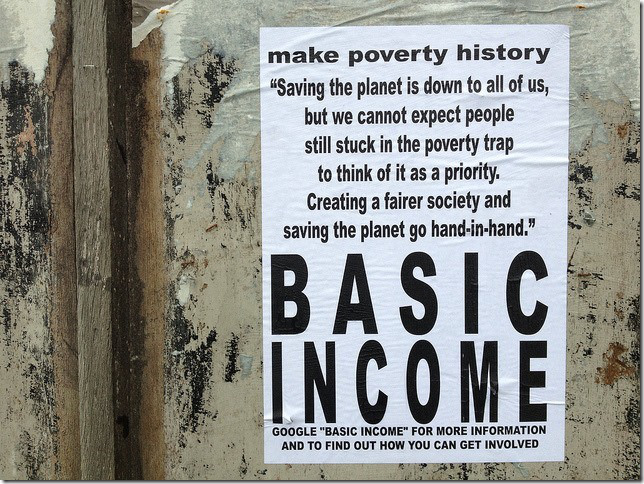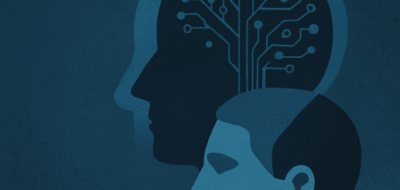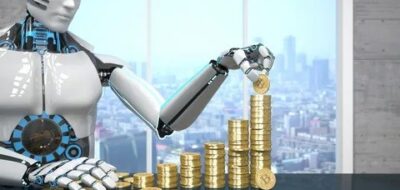Automation of work, robotization and artificial intelligence will reduce demand for human labor. By 2050, more than 250 million people will lose their jobs. Ensuring a basic income for citizens will become a political issue.
Inevitable changes to work and pay schemes
The income distribution system known in the 20th century is changing irreversibly. Globalization, human migration, technological changes and flexible labor markets provide ever more income to employers without increases in workers’ real wages. While the costs of living keep climbing, net incomes are dropping and becoming unstable. Constant job insecurity, and uncertainty about income levels will not be remedied by regulations governing minimum wages, tax relief and additional non-monetary benefits. Automation of work, robotization and artificial intelligence will reduce the demand for workers. New professions and jobs will emerge but, as reported by analysts, the changes will put more than 250 million people out of a job by 2050. Briefly put, ensuring a basic income guarantee will become a political issue.
The Finnish experiment
Since January 1, 2017, the Finish government has been implementing a project that only recently appeared to be a pipe dream. Two thousand unemployed people have been offered an unconditional monthly income of €560. The pilot is supposed to last through the end of 2018. The benefit will be provided even after the unemployed recipients take up employment. Should the project succeed, every Finn will receive close to €900 per month from the state. A similar plan has been announced by Ontario, Canada. Its program is to be launched in mid-2017.
We increasingly hear from various parts of the world about similar schemes being considered, analyzed and perhaps soon launched. As I write this article, comparable solutions are being discussed in California, Catalonia and Glasgow. Their primary aim is to find out whether unconditional basic financial benefits will restore a sense of stability in the lives of jobless people and drive them to pursue employment and self-improvement.
Here is what Mark Zuckerberg said in his speech at Harvard University in late 2016: “To keep our society moving forward, we need a generational challenge – to not only create jobs, but create a renewed sense of purpose and take on big meaningful projects. Our generation will have to deal with millions of jobs replaced by automation. We should explore ideas like universal basic income to give everyone a cushion to try new things. We’re going to change jobs many times, so we need affordable childcare and healthcare. And as technology keeps changing, we need to focus more on continuous education throughout our lives. And yes, giving everyone the freedom to pursue purpose isn’t free.”
Basic income guarantee
While basic income may come in various forms, it is always a certain guaranteed sum of money offered to every citizen to cover their living expenses and ensure their sustenance. The state will provide every citizen, regardless of their wealth, with an amount fixed by law with no strings attached, such as the requirement to perform work in return. The idea is to ensure that every member of society receives a share of the overall income independently of their needs.
A few months after the adoption of unconditional basic income in Finland, the first promising effects of the experiment became evident. Interestingly, they were seen in people’s attitudes. Better food, health and education, in the form of training courses and self-learning opportunities, improved work efficiency and production and service quality while reducing social inequality. Other benefits included a rise in self-employment, especially in the service sector.

The curious appeal of Basic Income Guarantee. Source: SemiPartisian
A future in which machines do our work for us
This vision is not as unattainable as it may seem. As prophesied by the renowned futurologist and founder of Singularity University, Ray Kurzweil, 2050 will see the birth of a Super Intelligence and 90% of all manual labor performed by machines. What will 9 billion people live off? Basic income and a tax on machine work and machine-to-machine data exchange transactions seems to be the only way forward for humanity. Additionally, the prices of products, services and data designed and produced by machines will be very low. In the future, the markup will not include the cost of human labor.
To adopt unconditional basic income, we have to make sure that the handout does not demotivate people from doing their jobs. While the Finnish and Ontario experiments have indeed been successful, they were only local and not expanded to a global scale. How will world markets and economies respond to the launch of unconditional universal income? There is no way of knowing. Enthusiasts of the idea claim there is nothing to fear, as work (not necessarily for money) is a fundamental human need, a part of their nature, and that people will never give it up for a free handout. They think that all the scheme will change is the way wealth is distributed across society. Those who work overtime will stop doing so, thus making space and creating demand for new workers. They themselves will meanwhile devote more time to their families and leisure pursuits. Supporters are confident that the basic income guarantee will not destroy the job market and instead make it more flexible. A pipe dream? I don’t think so.
Why we should give everyone a basic income. Rutger Bregman at TEDx
Reasons why I support the idea of basic income guarantee
There is a number of such reasons, based mainly on the outcomes of the Finnish and Ontario experiments. These can be grouped as follows:
Redefining ourselves. Basic income will give us the space we need to reflect on how and why we work. It will allow us to revise our career choices and may prompt us to change our jobs. Basic income may inspire us to pursue further education. It will help each of us decide what we really want to do without concerns about making a living weighing in on our options.
Cutting red tape. As one of the simplest taxation schemes, basic income guarantee will cut the bureaucracy that plagues every welfare state. It will also reduce the volume of tax-related documents in circulation and significantly simplify tax systems. Theoretically at least ☺
Social justice. Nobody will need to cheat the system to obtain the basic income, as everyone will be automatically entitled to receive it. Poverty and social inequalities will be stamped out. Innovation in the world of politics, society, economics and technology will become a daily occurrence.
More time for pleasure and self-improvement. People will spend less time at work, if at all, without jeopardizing their income. We will focus on the things we find to be significant. At the macroeconomic level, this will help better distribute jobs as people who work less will vacate jobs for those who are currently excluded from the labor market.
Better distribution of technology benefits. Substantial advances in technology and rapid increases in production capacities are bound to dramatically change the world of employment and the distribution of wealth. Wealth will be created and distributed as more added value is generated, contributing to overall progress. Wealth will not be inherited as it is today.
Some may take all this as encouragement to return to the socialist ideas of equal pay for all and equal wealth for each citizen. I don’t support such ideas, but then perhaps in the future, once machines perform our jobs, people who don’t find creative roles for themselves and are unable to settle into the new reality, will find unconditional basic income to be their only source of sustenance.

Universal Basic Income – Pilot Programs
Related articles:
– A machine will not hug you … but it may listen and offer advice
– According to our computers … You don’t exist
– What a machine will think when it looks us in the eye?
– End of the world we know, welcome to the digital reality
– Artificial Intelligence – real threats or groundless fears?
– Work of the future – reinventing the work
– Modern technologies, old fears: will robots take our jobs?










Check Batin
http://www.federalreserve.gov/releases/h8/current/
$12 trillion. And those guarantees come, rightly, with greater regulation.
And really, by $12 trillion, we mean $1.5 trillion, since those are the only equity losses possible, and while there are more deposits because depositors are covered, the depositors, people with less than $100k in the bank, are the ones enjoying the guarantee in full.
John McLean
Universal basic income (UBI) in its purest form is a payment that every citizen receives on a regular basis, without condition and as of right, in and out of work. Universal credit is paid on a household basis, is means tested and conditional, for example on recipients proving that they are actively searching for and accepting offers of work. The Finnish trial is not universal, as only 2,000 unemployed people were selected for it, but it is a basic income.
Norbert Biedrzycki
Currently demonstrated technologies can fully automate 42% of finance activities and mostly automate a further 19%
CabbH
There are 2 million social economy enterprises in Europe, representing 10% of all businesses in the EU. More than 11 million people – about 6% of the EU’s employees – work for social economy enterprises. They have different legal forms and various objectives ranging from agriculture and banking to provision of employment and sheltered workshops. The primary objective of the traditional social economy enterprises is to serve the members and not to obtain a return on investment as the traditional mainstream capital companies do. The members act in accordance with the principle of solidarity and mutuality, and manage their enterprise on the basis of ‘one man one vote’ principle.
Norbert Biedrzycki
Technical jobs automation potential by McKinsey & Company. Japan 55%, India 52%, China 51%, US 46% of all current jobs
CabbH
More and more independent thinkers are realizing that when being an employee is the equivalent to putting all your money into one stock – a better strategy is to diversify your portfolio. So you’re seeing a lot more people looking to diversify their career
Tom299
And so what?
Don Fisher
For instance, it appears to say that we will go from 1 million grounds and maintenance workers in the US to only 50,000 in 10 to 20 years, because robots will take over those jobs. How many robots are currently operational in those jobs? ZERO. How many realistic demonstrations have there been of robots working in this arena? ZERO. I hesitate to nitpick but if you consider lawnmowing a grounds job, consumer lawnmowing robots have been available for a while.
johnbuzz3
This is scary. 250 million people loosing it’s job? Difficult to imagine
TomCat
Interesting piece. Nice read 🙂
John McLean
The cool thing about robots is that they don’t need money.
AI is becoming more and more capable of doing jobs that you used to have to pay people to do, so why should the job market shrink faster and faster while a handful of fatcats (who own the robots) soak up all the profits, when those profits could be shared so the world is a better place for us all?
Karel Doomm2
We know the ultimate (if asymptotic) state (heat death), that can be predetermined once, but what we don’t know and can never know is exactly what the shortest path from any here and now to that one then and there.
John McLean
A UBI is going to pull people from the job market. A low UBI may only pool those that are already in poverty but as it increases it will start pulling those not in poverty and that do no not need a UBI for the essentials.
At least for awhile you are going to have a larger division between classes.
TommyG
You think about another segregation here?
TomK
Does money go away? How do humans live now? I’d like to say that we move into a world where everyone can do whatever they want. The robots control and manage everything, so humans can go to a trip to Africa, Canada, Europe, at no cost whatsoever.
That’s what I’m so curious about, are we willing to let robots do everything for us, get rid of money as a concept, and just live life doing whatever we want? I’d like to think we could, I certainly could, but a world where all you have to worry about is making yourself happy seems like something a lot of people would hate.
Karel Doomm2
… the we are gonna be happy doing nothing
Norbert Biedrzycki
It’s not only about reduction of jobs. Artificial Intelligence and Automation will create demand for a new jobs.
Norbert Biedrzycki
Automation could become global growth engine. 1,4% worldwide GDP growth out of automation
CabbH
More and more independent thinkers are realizing that when being an employee is the equivalent to putting all your money into one stock – a better strategy is to diversify your portfolio. So you’re seeing a lot more people looking to diversify their career
Norbert Biedrzycki
Very true. Better to be prepared with diversified investment and skills portfolio
johnbuzz3
I share your hope, but in a different way.
Humanity has gone through a similar transition – from agrarian to industrial. But the jobs created were not mechanics for farm machines, but using industrialization to solve problems on a new scale.
Similarly, I don’t see the new jobs coming from robot-caretaking, but from utilizing robots and AI to solve the problems that matter to each of us.
And championing those solutions, utilizing robots and AI, will be the new job market of the future.
So the new jobs…
Tom Jonezz
Basic income is a meaningless policy platitude until you get extremely clear about whether it supplements existing programs (in which case taxes must be massively raised) or replaces them without raising taxes, which destroys most efficient existing programs based around need.
TomK
Unfortunately basic income will not work based on taxing AI. Imagine if harvester manufacturers would be taxed to compensate the lost jobs in manual wheat harvesting. Listing not in order of importance:
– For the tax to cover the lost jobs the harvesters would need to cost more than the lost wages making them unprofitable to farmers.
– It won’t be clear who has to pay the tax. Parts manufacturers? Product manufacturers? Dealerships? Farmers? People would be forbidden from building their own harvester? This is a legal mess that everyone involved (except the government) has incentive to sabotage, so the goverment won’t be able to win this uphill battle.
– As for replacing jobs, yes, jobs were lost, but new better paying jobs appeard. (harvester manufacturing and repair) If harvester manufacturers pay their employees royally offsetting the total wages lost is that a net 0 tax?
– Harvesters didn’t replace all humans. Harvesters still require an operator, planning and maintenance – sure could be outsources, even automatised
– The whole premise of AI is based on humans becoming obsolete or too unskilled to employ. That would be a bigger problem than providing them with basic income. Having no marketable skills leads to higher crime, more war, rise in depression and poverty.
– The only way forward is to keep up as majority of humans. More education, develop higher skill sets, start new industries. Basic income and need based economy is basically communism. Why would you strive if you don’t need to, are paid the same or get taxed to death when you innovate?
Sorry, but people look at this issue much too simplistically with no grasp of the required taxes or consequences to society.
John McLean
Basic welfare (assets instead of money) seems like a much more viable and long-term solution. I don’t know what a dollar will be worth tomorrow, but I know what a bed will be.
TommyG
Interesting structure. IMHO quite exaustive
TomHarber
I like your comment
Check Batin
Basic income is a solution to the concept that a significant portion if not an outright majority of humanity is going to be unemployed for their entire lifespan. Essentially surplus humans.
The general idea behind basic income is that you can save a lot of money by getting rid of the massive bureaucracy that deals in figuring out who is entitled to what, by entitling everyone to the same basic minimum standard required to survive.
CaffD
Anything that exists has properties, and those properties once discovered can be tested and measured and analyzed by science. it’s obvious and trivial to say that science doesn’t know about everything that’s out there, but to say that there are things that exist that will forever remain outside the realm of scientific inquiry is asinine.
Jack666
Currency is just a tool for abstractly representing value to allow more efficient trade of goods and services. A barter system is just a less efficient currency system. If everyone has perfect equal access to all possible goods and services, sure, we mightn’t need currency. And given that I have a desire that requires incentivising others, they probably have similar desires which I can accomodate as an incentive. Norbert, we’re trading labour, but inefficiently because we don’t have currency.
John Accural
We train anybody who wants to be an engineer to work on robots and computers. Assuming we could work together as a species eventually, we offer this education to every child on the planet. Eventually technology gets so advanced that there is a global computer and automated network that makes a product for each demand. Population rates are foreseen to plateau. Robots will be making the most efficient amount of food to sustain human life without waste. Energy will be clean and sustainable. People jobs will mostly consist of robotic maintenance/ repair, programming, and the like. Everything will probably also be integrated with very realistic virtual reality where everyone could do anything they ever dreamed and would have all their needs met. So theoretically, crime would drop. Of course, unless this global computer concept is infallible, someone will take it over and destroy all humanity. The end.
Adam Spark Two
Mass automation is only useful if you have customers with disposable income to sell to. Basic income is intended to allow billions of humans who’ll never be self-sufficient to survive. That means there’s a huge market for standardized care.
DDonovan
Good one 🙂
John McLean
Your intuition is right, but that point is probably further out out than the income level it is intended for. The person who can eat and sleep tonight won’t rob you tomorrow, and may even go on to be a valuable citizen. To say the same through an economics view, production costs are lowered when there are fewer risks to business and more qualified workers. So there is more demand but also more supply.
JohnE3
We are not only trading labour here. Technology as well, Capex/opex wise
Mac McFisher
I feel like, if UBI did evolve into a post-scarcity moneyless society, then it would probably have to be done through violence. And by the time everyone survives off of handouts, I don’t think anyone that wants to change it would have the ability to use violence. That’s why I’d say a transitionary period is a bad idea-a good analogy IMHO would be the Soviet Union. It began with the intent of being a transition between capitalism to stateless and moneyless communism (which is distinct from but not mutually exclusive with a post-scarcity economy) by temporarily centralizing power. By the time it fell, it had long since become just another dictatorship designed to give power and wealth to those at the top without any intent to change at any point in the future.
DCzaj
Money problems: why Finland has given up on the basic income dream
As Finland’s government calls time on a bold experiment in giving citizens cash, can others still attempt such utopian schemes?
https://www.theguardian.com/society/shortcuts/2018/apr/24/finland-given-up-on-the-basic-income-dream
Mac McFisher
In a post scarcity economy, not a capitalist one, basic income will be a must. People like to talk to people generally, but if we don’t need to talk to service people, we prefer to talk with our loved ones. Look at European style service which is less friendly, more silent an unseen/unnoticed, to not intrude. The world will change. Manufacturing has changed, transport is next, then service, administration and finally healthcare.
Simon GEE
Robot McDonald’s will sell burgers far cheaper and better (robots are better) than Ronald McDonald’s can with his stupid human workers. Robots will be the new China and robots are even replacing Chinese workers so my money is on the cheapest option.
Adam Spark Two
Not true. Markets for individual customers will shrink into insignificance compared to the market for people on basic income. Ie. why produce for individual consumers if you can get massive government contracts for the care of discrete units of millions of people.
John McLean
Some governments have tried to micromanage the economy, and that has turned out very badly.
But UBI isn’t about micromanaging the economy. If anything, it’s more hands-off than existing welfare systems. It’s actually good for private businesses because it creates a guaranteed baseline level of demand for whatever those businesses are producing and provides a cushion against economic recessions.
Adam Spikey
I have to agree we’ll need a transitionary system to go from currency based to need based right? That’s pretty much what a UBI will do. Eventually once the cost of production gets as close to zero as it can everyone will realize that being a consumer society is extremely inefficient and we’ll enter into a post scarcity economy (like Star Trek). Then goods will only be produced for current real demand instead of our current system of creating demand through things like advertizing, planned obsolescence, etc. It’s crawl, walk, run, fly… and skipping a step just doesn’t work in this situation.
John Accural
Literally human jobs will turn to entertainment and pleasure, as well as what you said. You can’t remove the human touch from entertainment or pleasure.
It’s early that was profound in my head…
John McLean
Richard Branson: “Basic income is going to be all the more important. If a lot more wealth is created by AI, the least that the country should be able to do is that a lot of that wealth that is created by AI goes back into making sure that everybody has a safety net.” We’ll need our universal basic income to pay for our healthcare though, need to keep lining Richards pocket after all.
Adam Spark Two
At that point the nature of tax changes. Who cares if your automated corporations are massively taxed if that money is put to use for basic income that flows right back into your coffers through contract business.